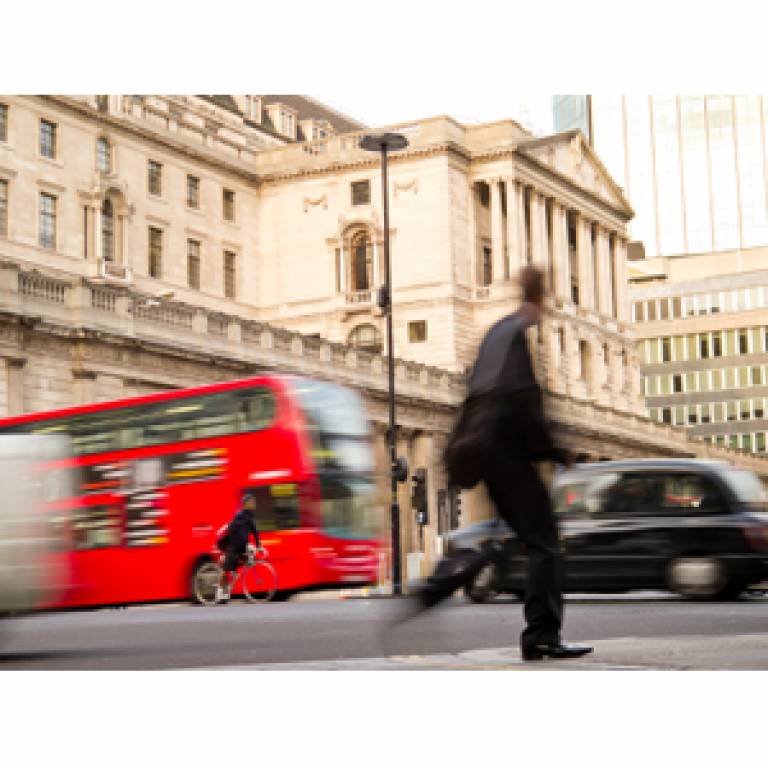Reducing car use is the key to better health
15 December 2011
With just 39 per cent of men and 29 per cent of women reaching the Department of Health's recommended level of health-enhancing physical activity, the answer to the UK's growing obesity problem could depend on people choosing to swap car journeys for walking and cycling, according to a new study by researchers at UCL.

The report, commissioned by the Department for Transport, highlights the fact that physical inactivity costs the nation upwards of £6.5 billion per year through its impact on overweight and obesity, while also directly costing the NHS an additional £1.08 billion per annum.
The report, compiled by Professor Roger Mackett and Belinda Brown of UCL's Centre for Transport Studies, concludes that:
- increasing physical activity through more walking and cycling is the key to improving health
- the only way to increase walking and cycling significantly is through reducing car use
- car ownership is entrenched in the lifestyles of many households and reduction is only feasible if households can maintain access to cars when they really need them and make rational, economic decisions about the most appropriate mode of travel for each individual journey (on foot, by car, bicycle, bus, train etc); this will lead to less car use
- the recent growth of car clubs, neighbourhood car rental schemes, car sharing and pay-as-you-go insurance helps to make this possible .
Everyone knows that walking and cycling can provide valuable physical activity, but how we actually get people out of their cars is not so obvious
Professor Roger Mackett
"Everyone knows that walking and cycling can provide valuable physical activity, but how we actually get people out of their cars is not so obvious," says lead author, Professor Roger Mackett.
"The key lies in reducing overall car use, but enabling people to maintain their current lifestyles by ensuring access to a car when necessary. By shifting away from the current situation where most households own cars, to one where people can have the benefits of access to a car when they need it while using other forms of travel when it's convenient we can empower people to make decisions which benefit their health, their household finances and the environment.
"We
need to shift the emphasis from households spending thousands of pounds on a
new car every few years and then experiencing a relatively low cost per trip, to
a situation where people pay for each individual trip but don't invest the
initial lump sum. By doing this, we will all think much more carefully about
the best way to make a journey - sometimes it will be by car, at other times it
will be by train, bus, walking or bicycle. Some households will find that they
no longer need to keep a car for their personal use and will save money."
Media contact: Dave Weston
Links:
Full report: "Transport, Physical Activity and Health: Present knowledge and the way ahead"
 Close
Close

